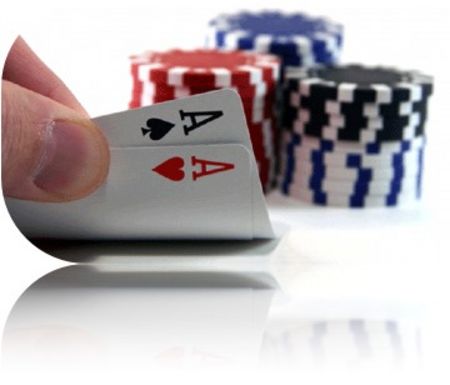Game Selection

Choosing a good game to play can dramatically increase your win rate. A popular
poker saying is, "You could be the tenth best player in the world, but if you are
playing in a game against the best nine, you are in trouble." It only makes sense to
play in games with the weaker players. Good poker players are good fishermen.
Find the fish, but avoid the sharks!
I generally use three criteria in choosing a game:
- Percentage of players playing the flop
- Average size of the pot
- Knowledge of opponents
One of the easiest ways to spot a good game is by the percentage of players
playing the flop. Most sites indicate this percentage in the lobby next to each game.
The higher the percentage is, the looser the game. This is usually a good indication
of the overall quality of the players. The better players tend to play at the higher
limits.
For example, at Paradise Poker, generally 20% to 30% of the players see the flop
at the high limits of $15-$30 and $20-$40. At the lower limits of $2-$4 and $3-$6,
you might see between 30% and 40% playing the flop. At the micro limits of $.50-
$1, you'll often see more than 40% playing the flop. The better players tend to play
at the higher limits and this is demonstrated in how many hands they play.
How do you use this information? If I see a full ring game of $20-$J40 where 35%
of the players are playing the flop, ray eyes light up. I should have a tremendous
advantage if I only play about 20% of ray hands. On the other hand, if 22% of the
players are playing the flop, my advantage is very slight. I would expect to earn
more money in the loose game where 35% of the players play the flop than I would
in the tight game.
Another indication of the type of action is the average size of the pot. The size of
the pot gives an indication on how aggressive or conservative the game is. If you
see a really high average compared to the other games at the same limit, it might
indicate that there is a maniac or two raising with a lot of hands.
Finally, after a high level review of the games, I will look to see which players are
playing in each game. If I spot a couple of weak players I have played before, I will
jump in. On the other hand, I will avoid the game whenever I see a bunch of
regulars who I know are consistent winners.
I also like playing against unknown players. This might indicate that they are new to
the game or are possibly stepping up from lower limits. Maybe they lost a lot of
money a year ago and are trying their luck again. Of course, they could be really
good players who are new to the site, but it is better playing against opponents who
could be weak rather than players you already know play good. If you are unsure
about the quality of the players, simply watch the game for a few minutes before
sitting down.
It is also important to be flexible in the limits you are playing. For example, if you
normally play $5-$10 and see that all the games look really tough, it might be better
to just drop down to one of the loose games at $3-$6. You might only be able to
manage a $5 earn rate in a tough $5-$10 game, while you might be able to win $8
in a really loose $3-$6 game.
One note about jumping up a limit. I generally play $15-$30 and $20-$40, although I
occasionally play $30-$60 when the game looks especially good. If I don't see any
weak players in the big game, I will just play my regular game of $15-$30 or $20-
$40 since I probably can earn more. When you want to start moving up limits, do so
gradually and try to choose good times to move up to improve your chances of
success.
The world of Internet poker is a huge ocean filled with many fish. If you don't find
any fish at your regular poker site, start exploring some of the others. I play up to
five different sites a week. I am constantly looking for the best action. If I see a
bunch of regulars playing at Paradise Poker, I'll look for a good game at Party
Poker. If I can't find a good game there, I'll look somewhere else. I realize that if you
only play a few hours a week, you may not want to spread your bankroll too thin.
But if you have a bankroll at several sites, it only makes sense to "shop" around for
the best game.
NEXT...Hold'em Variations

